

HEALTH
Mpox Outbreak Uncovers Hidden HIV Crisis in Sierra Leone as Trump’s Aid Cuts Take Effect!
Published
1 month agoon
By
OBS
The Mpox patient that sticks most clearly in Dr Elin Hoffman Dahl’s mind had lesions all over his body: in his mouth making it agony to eat; painful swellings under his feet meaning even walking to the toilet was a struggle, while the skin was “almost completely gone” from a number of other areas.
“He was a very beautiful person and I remember he asked for a small mirror. It was very heartbreaking to see,” Dr Hoffman Dahl says.
For many people, Mpox is a relatively mild though uncomfortable virus that clears up without specific treatment. But in Sierra Leone, where Dr Hoffman Dahl was deployed to support the country’s outbreak with Medecins Sans Frontieres (MSF), an epidemic of untreated HIV has transformed it into a deadly disease for some.
While Sierra Leone’s outbreak response is largely being heralded as a success story, Mpox has revealed that the scale of HIV in the country may be far higher than national data suggests. Meanwhile, Trump’s aid cuts left the country scrambling to plug gaps in programmes that has likely hampered the speed of its response, activists have told The Independent.
The first Mpox cases were recorded in January this year and from April they began to spike. Dr Hoffman Dahl, an infectious diseases doctor in Norway, travelled with MSF to join a team of highly-skilled Sierra Leonean doctors – well-accustomed to dealing with infectious-disease outbreaks. But she and her team were alarmed by the rates of HIV they were finding in their Mpox patients, several times higher than the estimated national average of 1.7 per cent.
Dr Hoffman Dahl says this was a surprise in a country that’s considered to have a relatively low HIV burden. Her colleagues who had worked on Mpox in Democratic Republic of Congo were taken aback by the severity of the skin damage they were seeing.
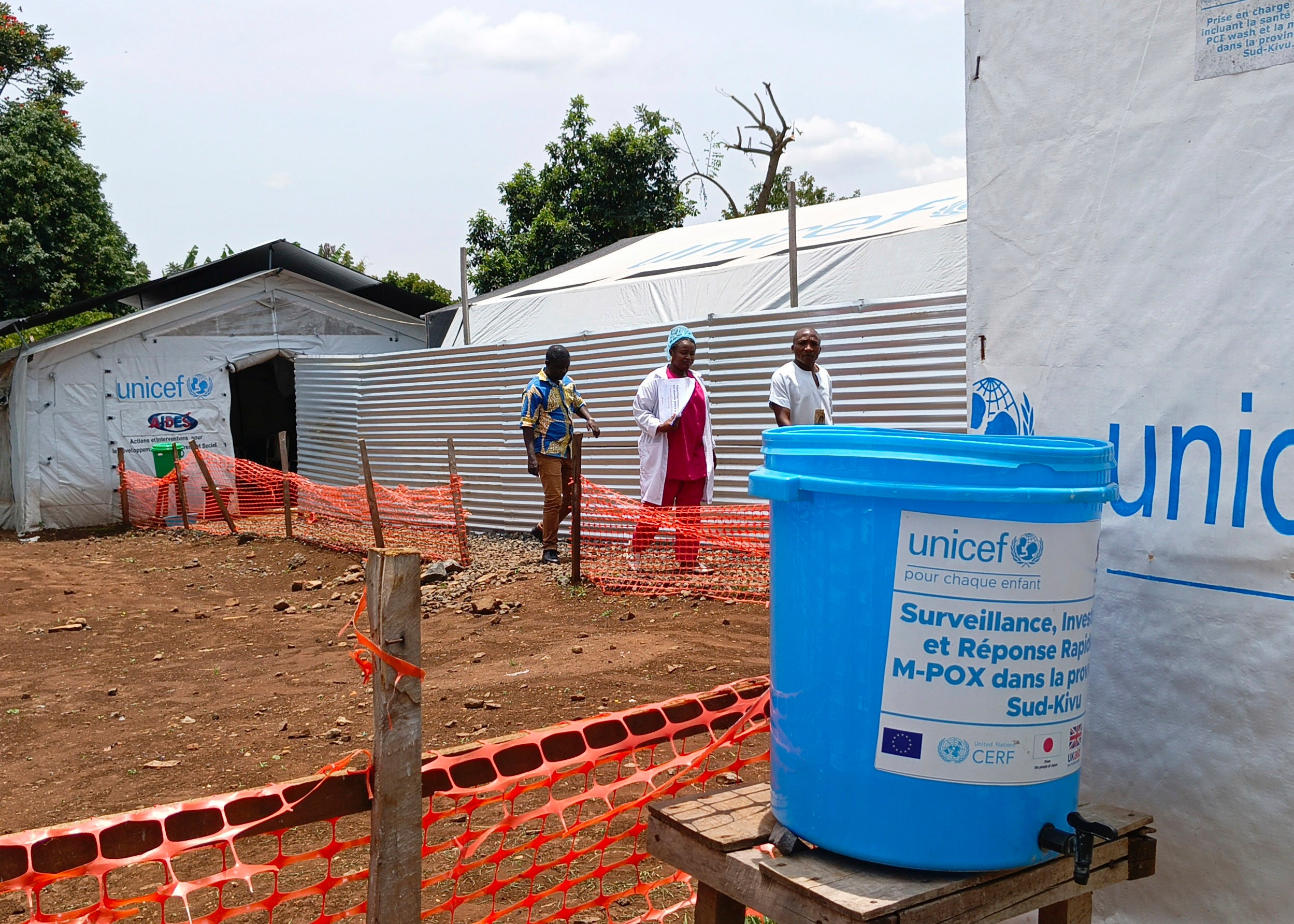
As well as cases of undiagnosed HIV, “I think one striking thing was that there was also quite a high number of people who had been diagnosed previously, but were not on treatment. And that, of course, tells you something – that it’s a stigma to be on treatment,” Dr Hoffman Dahl says. I had, for example, one patient who I was very open about [having]… stopped his medication two years ago.”
With medication, people living with HIV can generally deal with infections like anyone without the virus. But when Mpox finds someone with untreated HIV, whose immune system is severely compromised, it becomes a different story.
Then, the aim becomes, “to start people on HIV medicines and keep them alive until their immune system is able to heal the skin,” Dr Hoffman Dahl explains: “to keep them alive long enough for the medicines to reconstruct the immune system and to bring down the HIV virus.”
For her patient, this proved impossible.
‘Covering the gap’
“We managed to get [his] daughter to see him,” she recalls – he hadn’t seen her for months, reluctant to be seen so sick. “Two or three days later he died,” Dr Hoffman Dahl says, of complications from the infections battling it out in his body.
“It’s quite devastating…as a doctor you understand where it’s going and you feel like you’re not able to do enough”. Without enough labs, the more expensive antibiotics needed to deal with resistant infections and experimental anti-virals for Mpox that might be available in richer countries: “You’re not able to keep him alive just long enough for the drugs to be working.”
James Riak Mathiang, health programme manager for humanitarian charity GOAL Sierra Leone, worked closely with the country’s National Public Health Agency when Mpox cases emerged, to raise public awareness and work with communities to prevent more cases.
But the higher burden of HIV won’t be focused on until Mpox cases have been brought to zero, he says. Only after that will there be “further questions”, despite the fact that for some, their Mpox will never be brought under control unless their HIV is treated.
The impact on the Mpox response of Trump’s slashing foreign assistance spending down to the bare bones has likely been huge according to Riak Mathiang.

The biggest effect is from the loss of what’s known as flexible funding from the now-shuttered US Agency for International Development (USAID), he thinks. That’s money not earmarked for a specific programme, giving outbreak management teams the leeway to respond “immediately”.
“Let’s say there’s an outbreak today; tomorrow you can start the response,” Riak Mathiang says, including testing and paying for health workers and hospital beds.
“Even the partners who may not been affected by USAID directly, they have to reposition or repurpose their budget to cover the gap,” he says, leaching from other sources of ready money. As a result, not as many organisations came on board to support the response as they had during Covid or past Ebola outbreaks.
The cuts could have another, longer-term effect too. Where they hit programmes for HIV and TB, they risk driving up those infections which creates more immune-compromised people for Mpox to attack, Dr Mohamed Bella Jalloh explains .
“Those funding cuts can have an effect on the outbreak because the people most affected by those funding cuts are the ones also likely most affected by Mpox,” says Dr Jalloh, a doctor from Sierra Leone currently conducting research in Canada.
Sierra Leone’s outbreak response has become a model for other countries in Africa, Riak Mathiang explains. Despite global shortages of Mpox vaccines, the country has managed to get more than 200,000 doses into the country.
“Case management, surveillance, even risk communication at urban areas, is also going very well,” he says while the government was able to add 400 beds to quarantine Mpox cases in hospitals.
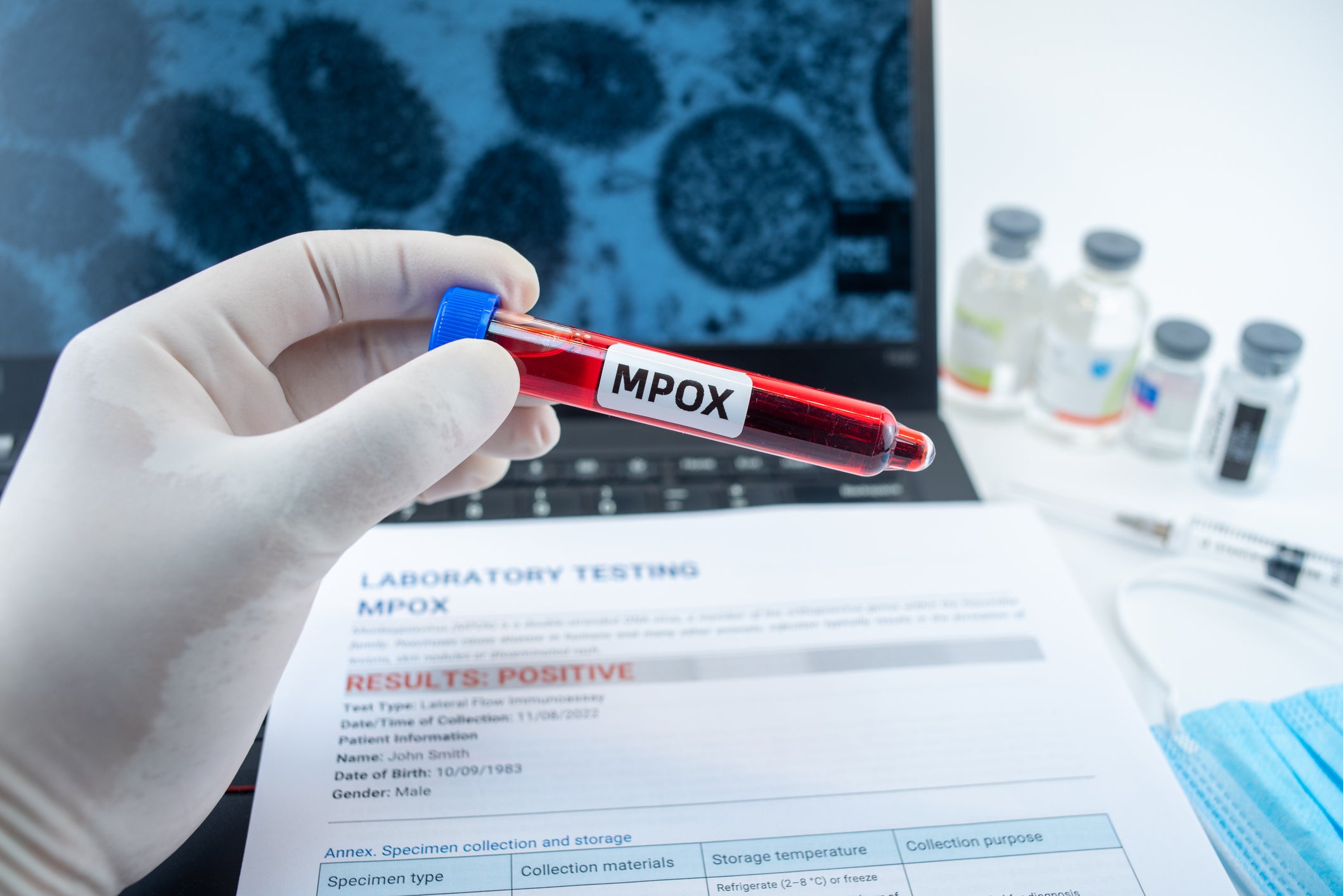
Where the response fell short, he thinks, was in its slow start and delays in getting traditional leaders in rural areas on board.
Jedidah Johnson is a doctor working in the private sector who found herself unable to get a vaccine, despite treating patients with Mpox symptoms. She contracted the virus herself, having to isolate from her two small children and developing lesions on her eyes. She understood that government health workers were being prioritised, but became “very frustrated” when she began to hear of others who were getting the vaccine ahead of her and her colleagues – seemingly because of personal connections.
“These were people who were not health care workers. They were not immunocompromised or high risk in any way. But they were able to get the vaccine and I was not because I work in the private sector but I am a frontline healthcare worker and I was seeing patients that were meeting the definition for Mpox,” Dr Johnson says.
Her concerns were not just for herself but for unvaccinated HIV patients who were the most affected.
“I think HIV is a much bigger problem than we let on because you know so many people…present with very late disease and so many people are in denial and are not taking treatment,” she says.
Dropping cases
Though the situation is a completely different one to what it was in early summer, Sierra Leone is still working towards zero cases – and as much as it is not the first, this is guaranteed not to be the last outbreak the country sees.
“I recall I was sitting in medical school during the Ebola outbreak and so we had a lot of foreign experts in, you know managing things…but less so during this current Mpox outbreak,” says Dr Jalloh.
This could be a sign of the dwindling global support for foreign assistance, but there is a brighter side too, he thinks.
He can see more local leadership in managing the response to this outbreak and a “more African-led” operation.
“And in the past couple of weeks, you’ve seen [a] 50 per cent drop in the cases”.
Ambitions to move away from aid dependency are nothing new and national agencies to take on responsibility were already taking shape, but cuts from major donor countries may have forced the issue.
“These conversations had been going on for a long time but even when you’re having conversations, you’re dragging your feet,” Dr Jalloh says, whereas the “shocks” of aid cuts from the US and others have been a “wake-up call. Let’s get things going, right”.
“Aid should not define your agenda”.
This article was produced as part of The Independent’s Rethinking Global Aid project
You may like
-


Could Trump’s Meds Be Slowing Him Down? Expert Warns They Might Not Be Helping!
-


Rangers in Crisis: Shocking Setback in Manager Search Leaves Fans Reeling!
-


Trump’s Middle East Peace Dream Crumbles Just 24 Hours In!
-
Uncover Shocking Hidden Fees That Are Diminishing Your Digital Transaction Savings!
-


Eric Trump’s Shocking Claim About His Dad ‘Saving God’ Sparks Outrage!
-


New and Surprising Side Effect of Weight-Loss Drugs on the Rise, New Study Finds!
HEALTH
Can’t Tell If It’s Covid or the Flu? Here Are the Key Symptoms You Must Recognize as Cases Surge!
Published
2 weeks agoon
October 16, 2025By
OBS
Health officials are warning of a seasonal surge in flu and Covid-19, with cases already starting to rise as autumn arrives.
But because the two viruses share many symptoms, it’s difficult to tell them apart.
When a sniffle seems to progress further than “just a cold”, it’s hard to know what it might be – but there are differences in how the viruses appear and the risks they pose.
Do I have Covid?
Covid-19 continues to cause serious illness, particularly among vulnerable groups. The virus is constantly evolving, with new variants spreading easily through coughs, sneezes or even conversation.
Vaccination campaigns each autumn continue to try to prevent hospitalisations and deaths.
The list of symptoms has shifted since 2020. Many people now experience cold-like symptoms, such as a runny nose, sore throat or blocked sinuses. But others still report fever or chills, a persistent cough, fatigue, headaches, shortness of breath, or a loss of taste and smell. Nausea and diarrhoea can also occur.
Doctors say a hoarse throat has become one of the hallmark features of the latest variants.
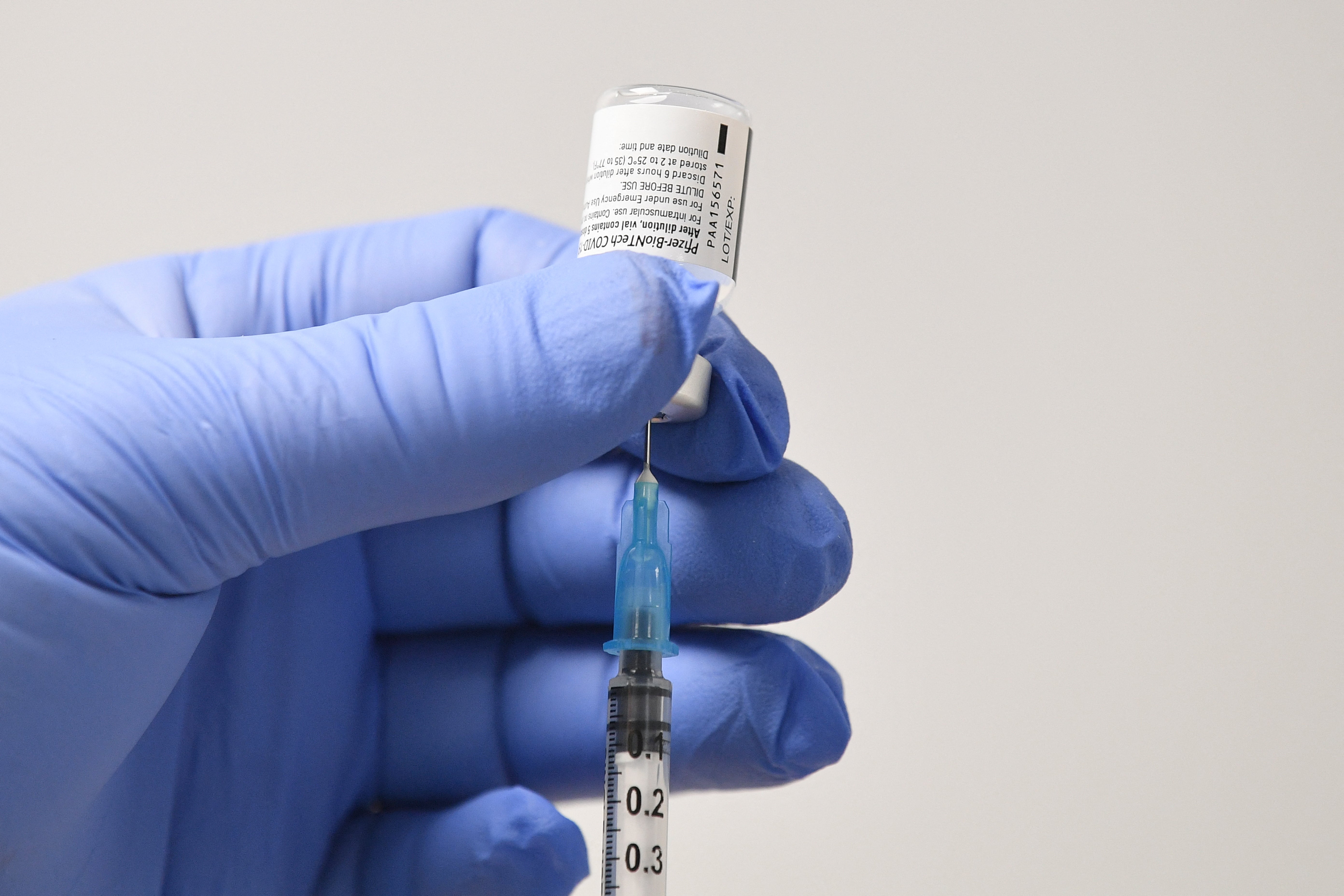
The latest strain, called Stratus, has two variants, XFG and XFG.3. Another recent strain, NB.1.8.1 nicknamed Nimbus, is also prevalent.
“Stratus is linked to hoarseness and fatigue, whereas Nimbus is associated with a ‘razor-blade’ sore throat and digestive symptoms like nausea and bloating,” explains Dr Bruno Silvester Lopes, lecturer in microbiology at Teesside University. “Both are highly transmissible but not more severe than previous variants.”
Despite accounting for a large proportion of new cases, experts are not concerned about the spread, noting it is normal for viruses to mutate and change.
Those aged 65 and over, care home residents, and people with underlying health problems are all entitled to the Covid-19 booster.
Do I have the flu?
Flu is a respiratory infection that strikes hardest in winter and can be far more debilitating than the common cold. While colds typically bring a runny nose, sneezing, watery eyes and mild throat irritation, flu tends to arrive suddenly with fever, aches and exhaustion.
Last winter alone, the flu sent more than 8,000 people to hospital. Over the past two years, at least 18,000 deaths in the UK have been linked to the virus. Children, older adults, people with long-term health problems and those with weakened immune systems face the highest risks.
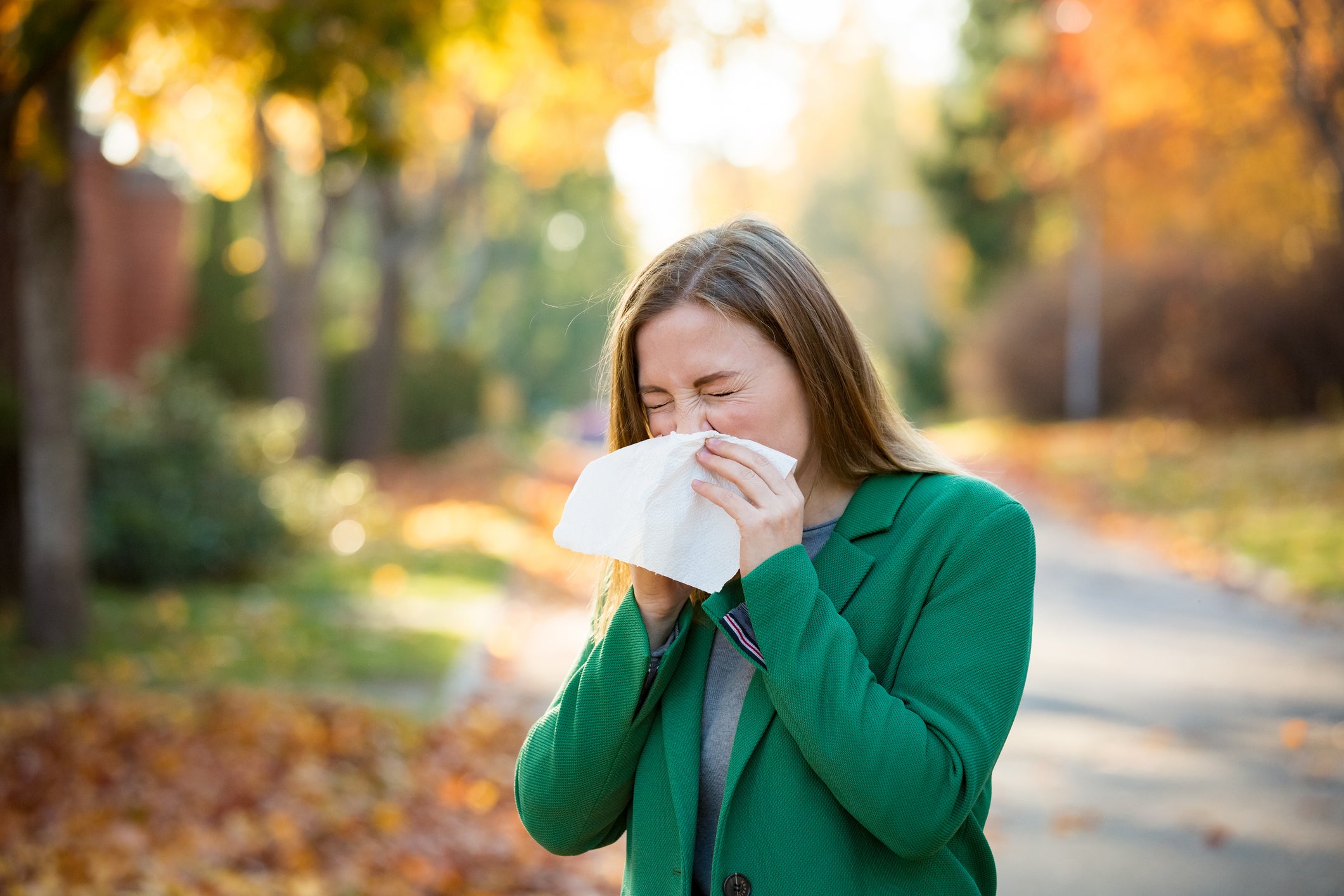
Vaccination remains the strongest defence. Research shows that last year’s jab prevented thousands of severe cases, cutting hospital admissions by almost a third among over-65s and by more than half among children aged two to 17.
This autumn, the flu vaccine is being offered free to those over 75, pregnant women, children aged 2 and 3 through their GP, and schoolchildren from reception to year 11 via nasal spray. Adults under 65 with certain health conditions are also eligible.
How to tell difference between Covid and a cold
Colds and Covid can be tricky to distinguish as many of their symptoms overlap.
“Both can give you a sore throat, runny or stuffy nose, sneezing, and coughing,” says Dr Chun Tang, a GP at Pall Mall Medical. “However, Covid can also cause fever, fatigue, muscle aches, and that telltale loss of taste or smell – although that’s less common with newer variants.
“Covid is also more likely to make you feel wiped out, like you’ve been hit by a truck, whereas a cold tends to stay in your head and chest.”
“Both spread mainly through droplets when someone coughs, sneezes, or even talks near you,” says Tang. “Covid, however, can also spread more easily through the air in tiny particles that linger, especially in crowded or poorly ventilated spaces.
“So, while a cold might need a bit of close contact to catch, Covid can sometimes sneak across the room if you’re unlucky.”
Are cases climbing now?
According to the UK Health Security Agency, levels of flu and Covid-19 are already on the rise running into winter, joining other seasonal bugs such as RSV and norovirus.
UKHSA reported an increase in the number of reported Covid diagnoses in its 9 October report, with the most prevalent strain noted as Stratus XFG. Flu activity was also increasing among young adults with a surge in emergency department attendances for flu-like illnesses.
Experts say the risk is highest during the colder months when viruses spread more easily indoors.
Officials are urging everyone eligible to take up their vaccines to reduce the strain on hospitals and protect the most vulnerable. Both flu and Covid-19 can be serious, but prevention and early awareness remain the best tools against them.
HEALTH
Shocking Recall: Grocery Store Taco Kits Contain Hot Chocolate Packets!
Published
2 weeks agoon
October 16, 2025By
OBS
The Giant Company is recalling its Giant and Martin’s-branded hard taco dinner kits after hot chocolate sachets were discovered inside the packages.
The mix-up, announced October 10, could pose a risk to consumers with milk allergies.
The recall affects the 9.4-ounce Giant/Martin’s Hard Taco Dinner Kit (UPC 068826757516) all lot and codes, with a best-by date of March 13, 2026.
Consumers with a milk allergy should not eat the kits. Anyone who purchased the affected product can return it to a nearby store with a receipt to receive a refund.
Milk allergy is a common food allergy in children, caused by cow’s milk or milk from other mammals, according to Mayo Clinic.
.jpg)
Reactions can occur soon after consumption and range from mild symptoms like hives, vomiting, and digestive issues to severe, life-threatening anaphylaxis.
The main treatment is avoiding milk and milk products. Most children outgrow the allergy, while others may need to avoid milk long-term.
Meanwhile, Sno Pac Foods, a Minnesota-based company, has issued a nationwide recall of its frozen spinach products due to potential contamination with Listeria monocytogenes, a bacterium that can cause serious infections.
The recall affects two products: Del Mar 35-pound Bulk Organic Frozen Spinach and Sno Pac 10-ounce Organic Frozen Cut Spinach. These products were distributed across various retail stores in the U.S. The recall was prompted after a bulk case of spinach from a supplier tested positive for the bacterium.
This same lot was used to repack the Sno Pac Organic Frozen Cut Spinach into 10-ounce bags. As a precaution, Sno Pac Foods has suspended production of these products while investigating the source of the contamination.
No illnesses have been reported in connection with the recalled products. However, Listeria monocytogenes poses a significant health risk, particularly to young children, the elderly, pregnant women, and individuals with weakened immune systems.
In healthy individuals, infection may cause short-term symptoms such as high fever, severe headache, stiffness, nausea, abdominal pain, and diarrhea. Pregnant women are especially vulnerable, as infection can lead to miscarriage or stillbirth.
HEALTH
Could Trump’s Meds Be Slowing Him Down? Expert Warns They Might Not Be Helping!
Published
2 weeks agoon
October 16, 2025By
OBS
An adviser to Health Secretary Robert F. Kennedy Jr. warned Wednesday that President Donald Trump may appear to be “slowing down” because of the medication he takes, as questions continue over the president’s mental and physical health.
In a speech to the European Parliament, Dr. Aseem Malhotra, a British cardiologist who advised the lobby group Make America Healthy Again, said that Trump, 79, may be suffering from fatigue due to his use of cholesterol medications, or statins, and aspirin.
“President Trump is taking statins; he’s on two cholesterol drugs… This man does not have any cardiovascular disease,” Malhotra said during a launch event for a new European health activism organization, Make Europe Healthy Again (MEHA).
“If you’re over 75 and have no cardiovascular disease, the benefit of statin is – are you ready? One in 446. You have to give the statin to 446 people to prevent one cardiovascular event,” he said. “In other words, no significant benefit.”
Malhotra, a vaccine skeptic whose anti-COVID shot and anti-statin views have been rebuked as misinformation by medical experts, has been a close ally to Kennedy.
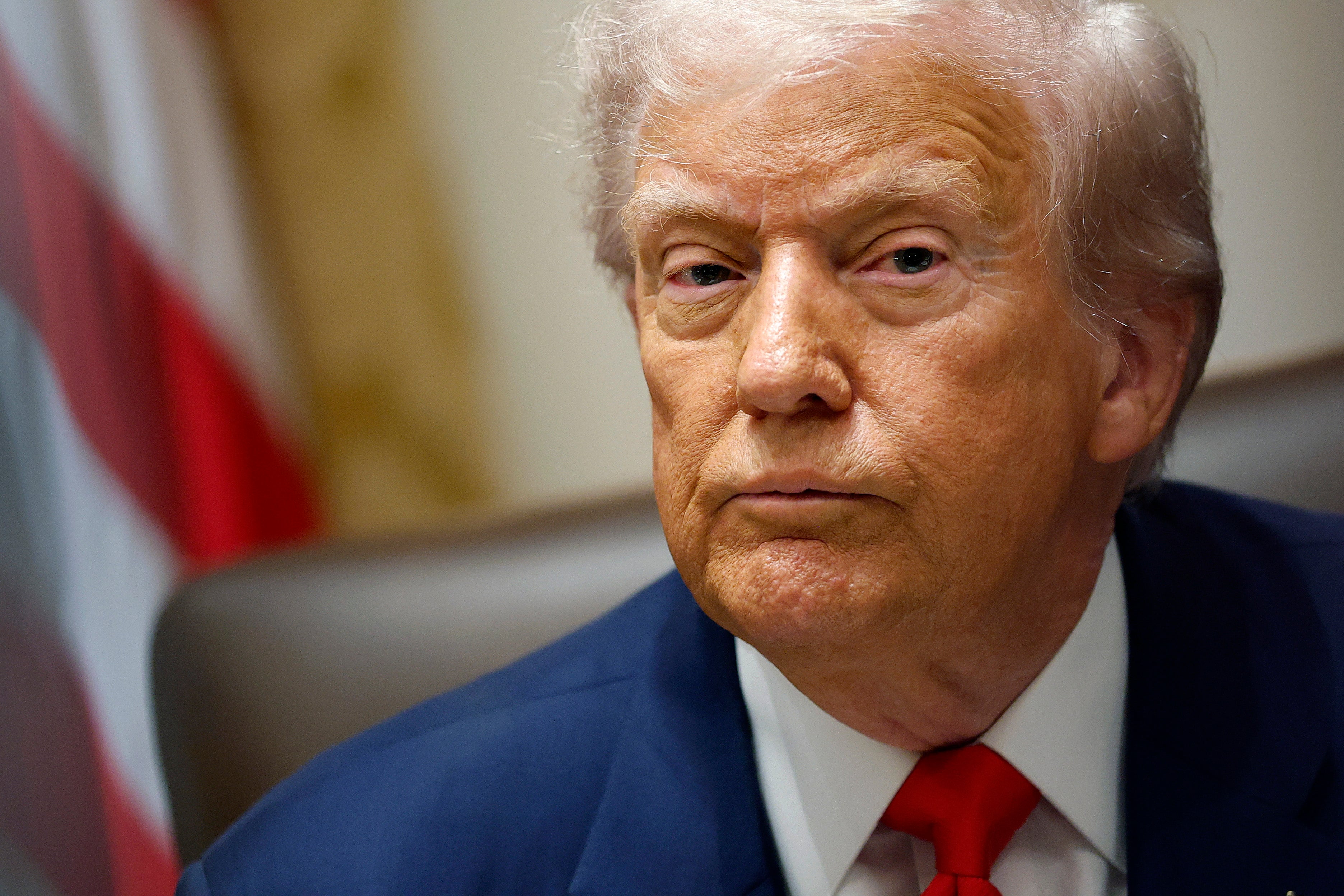
His comments come amid claims that the president may be showing signs of “cognitive decline,” due to mixing up names and other gaffes. Despite the speculation, the White House said last week that Trump was in “excellent overall health” following a “routine check-up” at Walter Reed Medical Center.
In addition to concerns about his mental acuity, Trump’s physical health has also come under question. The president has often been photographed with bruising on his right hand, raising concerns that he is suffering from some illness. The White House insists that this is a result of him shaking hands with a large number of people and his use of aspirin, which he takes as a cardiovascular protection.
White House officials revealed earlier this year that he had been diagnosed with chronic venous insufficiency, a non-life-threatening condition caused by the veins struggling to return blood to the heart. The condition is common for people over the age of 70.
During his remarks, Malhotra noted that cholesterol medication often comes with side effects, saying: “The most common ones are fatigue, muscle pain. It can cause brain fog.”
He added: “Now, I know that President Trump is a remarkable man for his age, but there have been reports – probably exaggerated by some sort of devious press for sure. But I know people who are close to him… and of course he is doing a tremendous job and maybe only sleeping four hours a night, and that may be part of it too, but it could also be that he’s slowing down a little bit because of his statins,” he continued.
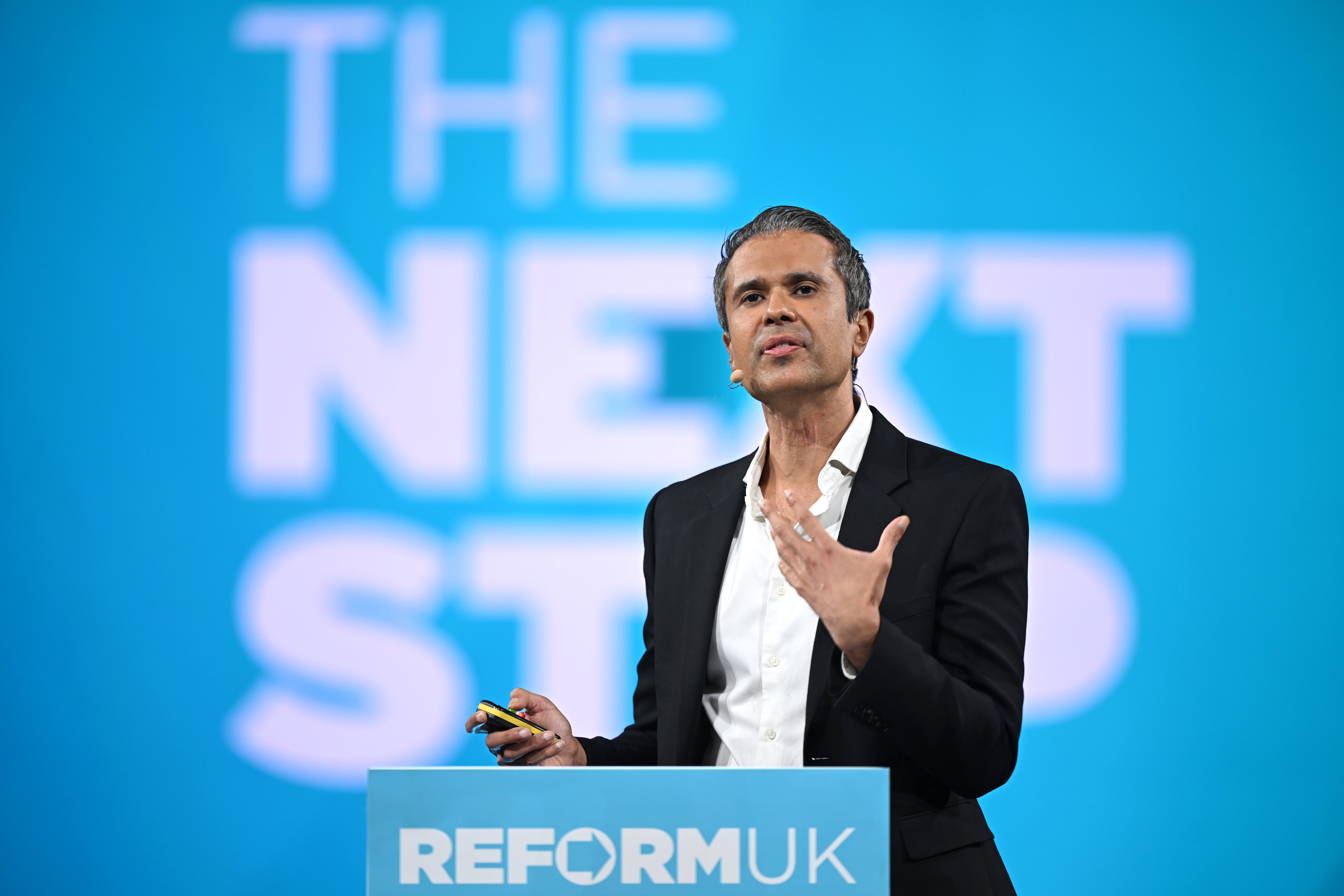
Malhotra then suggested that Trump go “off his statins, off his aspirin” and would be “feeling great” within a matter of weeks.
He was apparently so concerned about Trump taking the medications that he has reached out to several people close to the president to try and warn him against it, The Daily Beast reported Tuesday ahead of Malhotra’s public remarks.
In a statement to The Independent, the White House said: “President Trump is a champion-level golfer with the mental acuity and energy levels that most young people could not fathom having.”
“So-called medical ‘experts’, especially foreign ones with no relevance or involvement with the Administration, should stop beclowning themselves and marring their credibility by pitching their idiotic hot takes with Fake News outlets that have nothing better to cover,” White House spokesman Kush Desai said.

Along with Trump’s most recent gleaming health report, White House officials noted the president received a flu shot and an updated COVID-19 booster, which Malhotra called unnecessary.
“I think President Trump, I think he genuinely took the [COVID-19] booster, I don’t think that this is a front. I think he believes in what’s happening. He himself is also a victim of medical misinformation,” Malhotra said.
However, recent research shows that COVID shots protect against serious illness and death, especially for people over the age of 65. Researchers from the VA St. Louis Healthcare System looked at data from nearly 300,000 veterans and found that last season’s Covid vaccine reduced the risk of emergency room visits by 29 percent, hospitalizations by 39 percent and deaths by 64 percent for all ages, NBC News reports.
Combining all three outcomes, the shots’ overall effectiveness was 28 percent, making it similar to the flu shot, which ranges from 30 to 60 percent protective against severe illness or death.
An April health report also noted that Trump, who was the oldest person to ever take office in January at 78, was in “excellent” health.
The report also noted that Trump had high cholesterol that was being treated with the statin rosuvastatin and ezetimibe, a medication used to absorb cholesterol. He was also taking a low-dose aspirin as part of the treatment, his doctors said at the time.
While there is no evidence that statins alone cause dementia, the FDA added a safety warning to the medications in 2012 to warn of “notable, but ill-defined memory loss or impairment that was reversible upon discontinuation of statin therapy.”
Last month, Malhotra made headlines after suggesting – without evidence – that King Charles III may have gotten cancer because of the COVID-19 vaccine.
Categories
Top Tags
Related posts






















